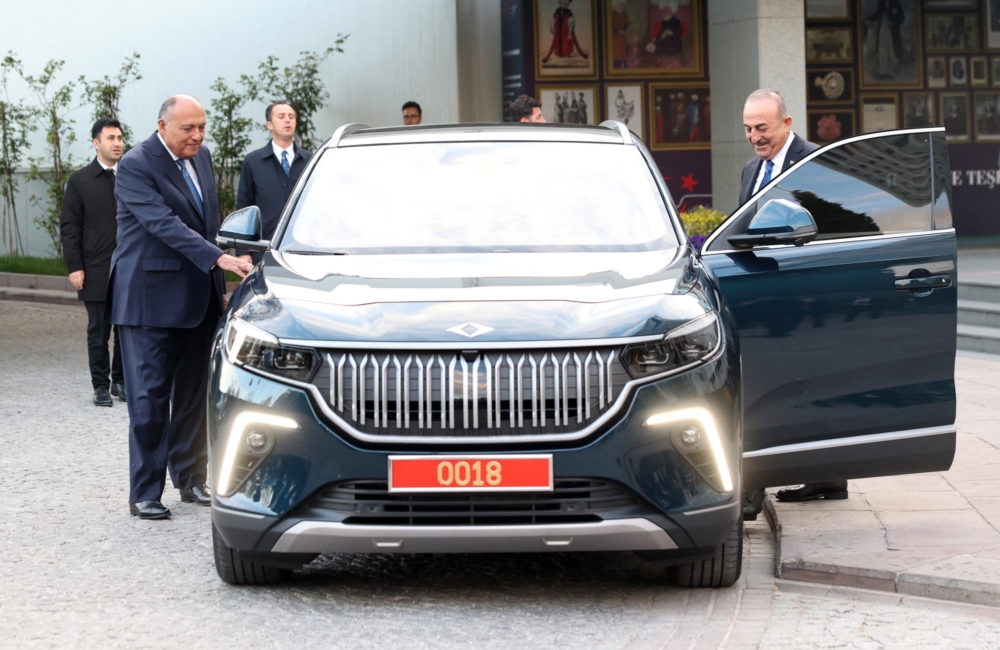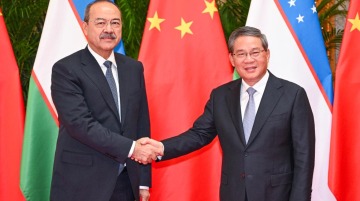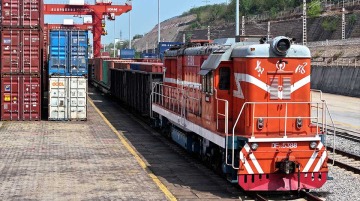
As global tensions rise over Chinese electric vehicles (EVs), a seismic shift is underway. With the European Union and the United States tightening their stance and slapping tariffs on Chinese-made EVs, China is responding with a bold new strategy: reshoring its industrial muscle to the Global South. These tariffs, framed as a response to market distortion and national security concerns, are more than just trade measures—they are signals of deepening geopolitical rivalries and economic protectionism.
But for China, this is not a retreat; it is a redirection. By shifting production to emerging economies, Beijing can bypass trade barriers, reduce shipping costs, and localize value chains—all while maintaining access to key export markets. The center of this recalibration lies in Türkiye.
Türkiye is not just geographically strategic; it is rapidly becoming a critical launchpad for China’s EV ambitions. In a move that signals high stakes and higher confidence, China’s EV giant BYD has inked a deal to build a $1 billion production facility in the city of Manisa, a major industrial hub in western Türkiye near the Aegean coast, expected to roll out 150,000 vehicles annually starting in late 2026. But BYD is only the beginning.
Chinese automaker Chery is in the final stages of negotiations to establish its own manufacturing base in Samsun, a key Black Sea port city in northern Türkiye, while SWM Motors has already greenlit plans for a plant in Eskişehir, a city known for its strong rail and manufacturing infrastructure, starting with an annual capacity of 25,000 vehicles, with room to scale further.
Push Factors: When Export Dreams Hit Protectionist Reality
The growing interest of Chinese EV companies in Türkiye is driven by powerful push and pull factors that are reshaping the global EV supply chain. On the push side, escalating trade barriers—most notably the recent imposition of tariffs on Chinese EVs by both the European Union and the United States—have made it increasingly costly and politically sensitive for China to export directly from its mainland factories.
In response, Chinese automakers are accelerating industrial reshoring, seeking to relocate parts of their production to countries with lower manufacturing costs, strategic market access, and fewer regulatory hurdles.
This strategy is not random. China is targeting countries that already have established automotive manufacturing ecosystems, offering skilled labor, logistical infrastructure, and strong industrial policy support. Among the emerging reshoring hubs are Uzbekistan, Brazil, Mexico—and crucially, Türkiye as a gateway to both the EU and the Middle East.
Türkiye’s strategic value lies not only in its geographic proximity to Europe but also in its customs union agreement with the EU, which allows vehicles produced in Türkiye to enter EU markets with significantly reduced trade friction. This gives Chinese automakers a critical lifeline to maintain their export volumes despite rising protectionism. But Türkiye is not just a convenient export base—it is also an emerging market in its own right.
Driven by high fuel prices and a growing demand for premium, fuel-efficient alternatives, Türkiye is witnessing a surge in interest in EVs. The government has rolled out generous incentives (including reductions in special consumption taxes, tax exemptions, and purchase subsidies) while also signaling plans for a carbon-based taxation system that will further favor electric over internal combustion vehicles. For Chinese EV makers, this dual opportunity to use Türkiye as both a production hub and a growing consumer market is simply too valuable to ignore.
Pull Factors: The Turkish Gambit: How Ankara Is Reshaping the Investment Game
On the pull side, Türkiye’s own industrial policies are playing a decisive role in attracting Chinese EV manufacturers. Ankara has introduced regulations requiring brands that import models from non-free trade agreement countries to establish at least 20 dealerships across Türkiye’s seven regions, along with a local call center employing a minimum of 40 representatives.
These measures are designed to ensure that foreign brands contribute meaningfully to the local economy, and they are increasingly nudging Asian automakers, particularly Chinese companies, toward localized production.
Moreover, Türkiye has imposed a 40% import tax specifically targeting Chinese EVs, echoing similar protectionist moves by the European Union. This tariff significantly affects the price competitiveness of Chinese brands in the Turkish market. For instance, following the new tax, Chery raised its vehicle prices in Türkiye by an average of ₺100,000 Lira, or over $3,000 USD — a move that could deter cost-sensitive consumers.
However, Chinese companies that invest in local production facilities are exempt from this import tax, creating a powerful incentive to set up manufacturing operations in Türkiye. As a result, major Chinese automakers such as BYD, Chery, and SWM Motors are now taking strategic steps to localize production in Türkiye to lower their costs, protect their market position, and expand their domestic share.
Another key pull factor is rooted in the broader China–Türkiye economic relationship, which is increasingly under scrutiny in Ankara due to a deepening trade imbalance. In 2023, Türkiye exported just $3.3 billion worth of goods to China while importing a staggering $45 billion, much of it in the form of intermediate goods and components critical to Turkish industry.
This one-sided trade flow has fueled frustration among Turkish policymakers, who argue that it undermines local production and leaves Türkiye overexposed to Chinese supply chains. Furthermore, Chinese foreign direct investment into Türkiye remains modest, failing to offset the growing import dependency.
In this context, the recent surge of interest from Chinese EV firms can be seen not just as a commercial strategy, but also as part of Beijing’s broader effort to ease political concerns, improve economic reciprocity, and create a more cooperative bilateral platform.
Opportunities: Jobs, Growth, and Industrial Upgrade
The localization of Chinese EV production in Türkiye presents both promising opportunities and significant risks. On the benefit side, in the context of Türkiye’s ongoing economic volatility, investments by Chinese EV companies offer a much-needed boost to the country’s automotive supply industry.
These investments could help revitalize industrial production, stimulate related sectors, and potentially usher in a technological upgrade across the manufacturing ecosystem. Notably, BYD’s decision to build a $1 billion EV plant in Manisa stands out as the single largest foreign direct investment in Türkiye in the past decade.
Beyond macroeconomic impacts, these investments are expected to generate substantial employment. BYD alone is projected to create up to 5,000 new jobs, offering not just short-term income but also long-term benefits through skill development and human capital formation.
The establishment of local EV manufacturing also strengthens Türkiye’s industrial base, enhancing its capability to produce various EV components. Over time, this could position Türkiye as a strategic export hub—not only to the European Union, but also to the Middle East and Africa—as demand for EVs and their parts continues to rise globally.
Risks: From Partner to Satellite: The Technology Transfer Trap
However, these benefits come with considerable risks. Chief among them is the potential dominance of Chinese EV brands in the Turkish market, which could marginalize the country’s nascent domestic EV industry.
Well-capitalized and technologically advanced Chinese companies that offer competitively priced vehicles could overwhelm local players, particularly Türkiye’s homegrown brand TOGG. Rather than fostering healthy competition, this influx might stifle domestic innovation and suppress the growth of a sustainable Turkish EV ecosystem.
A deeper concern lies in the nature of the localization process itself. Despite BYD’s stated intention to establish an R&D center focused on sustainable mobility, there are doubts about how much technology transfer will actually occur.
In July 2024, China’s Ministry of Commerce issued a warning to domestic automakers about the potential risks of foreign investments, especially in countries like Türkiye, emphasizing the importance of protecting China’s intellectual property and preventing the leakage of critical technologies.
This reflects Beijing’s broader strategy of encouraging outward investment while maintaining tight control over core technological assets, including advanced battery systems, AI-driven mobility platforms, and EV design architecture.
For Türkiye, this creates a real risk that localization may remain superficial and limited to assembly rather than innovation. In such a scenario, critical components like batteries, electric motors, and software could continue to be imported from China, with Türkiye reduced to a low-value-added role in the global EV value chain.
Without meaningful access to intellectual property, research collaboration, or supplier integration, Türkiye risks becoming merely a production satellite, serving Chinese exports to the EU and nearby regions rather than evolving into a co-developer of cutting-edge green technologies. To avoid this outcome, Türkiye must negotiate investment terms that promote real localization, joint ventures, and strategic technological partnerships.
Yunis Sharifli is CGSP’s Non-Resident Fellow for Central Asia.







